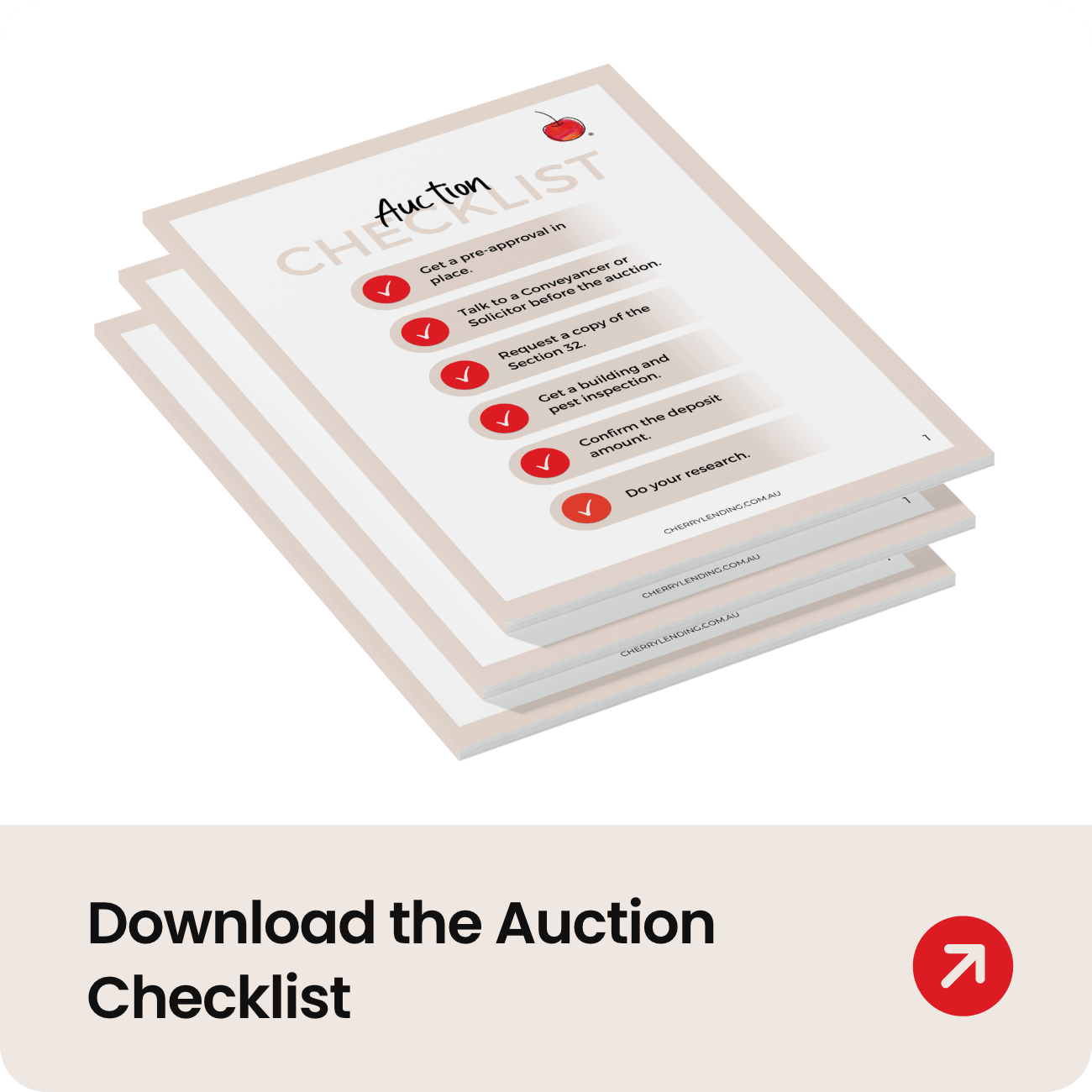If you’re currently in the market for a new home or considering an investment property, you might encounter opportunities where homes are up for auction. However, stepping into the auction arena requires careful preparation. While auctions can be thrilling, the fast-paced nature of the event may tempt you to bid impulsively on a property that may not align with your needs.
To help you approach the auction process with confidence, it’s essential to address common questions that many buyers have when participating in such events. By doing so, you’ll be better equipped to make informed decisions and avoid potential pitfalls on the day of the auction.
What is an auction?
An auction is a process where the property is sold to the highest bidder. The seller sets the reserve price and the real estate agent does their best to get either the reserve price or higher for their client. So, while the auction is all about the excitement of competing bids, there’s a financial boundary set by this reserve price, ensuring the seller won’t have to compromise below their acceptable threshold.
What is a reserve price?
The reserve price serves as the minimum amount that the seller is prepared to accept for the property being auctioned. If no bidder attains or surpasses the established reserve price on the day of the auction, the property may not be sold.
Leading up to the auction, the reserve price remains confidential, which means the potential buyers do not know what the starting point is. However, it’s worth noting that the auctioneer may choose to disclose the reserve price after it has been successfully met during the bidding process. This practice is often employed to provide transparency and clarity to all participants involved in the auction.
What is the auction process?
On the day of the auction, interested buyers meet at a specific location, typically the property itself or a designated venue. The auctioneer kicks off the proceedings by outlining the terms and conditions of the auction, including any details regarding the deposit.. Throughout the event, the auctioneer shares important details about the property, including when the reserve price is met or other advantageous offerings for buyers. It’s essential to listen attentively to stay informed about these key aspects so that you are fully informed on everything. Auctions happen at a fast pace and there is no time for questions after the bids. Listen carefully and make sure you know exactly what’s going on at all times.
Here are some tips to keep in mind during the auction:
- Set your maximum bid in advance: Before the auction begins, decide on your top bid and stick to it, no matter the excitement of the bidding process. The auctioneer’s goal is to secure the highest bid, so it’s best to remain steadfast with your predetermined maximum. The last thing you want is to bid higher purely because you’re caught up in the whirlwind of the day and then regret it later.
- Keep your bid confidential: Refrain from sharing your bid amount with anyone on the day of the auction. Remember that both the agent and the auctioneer are working in the seller’s interest, not yours. Maintaining privacy about your bidding strategy ensures that you maintain control and strategic advantage in the negotiation process.
How do you bid?
Participating in an auction involves a structured process that requires careful preparation and adherence to the rules. While it is a good idea to register or make yourself known for the event, it is not always a requirement. If you would like to express your interest in attending an auction, you should submit your name to the auctioneer before the scheduled event.
Upon successfully completing the pre-registration requirements, you will either have a numbered bidder’s card on the day of the auction, or simply raise your hand should you wish to bid. This personalised card serves as your official identifier and tool for placing bids during the proceedings. The numbered bidder’s card not only signifies your active participation but also streamlines the auction process and helps to keep track of the bidders.
This registration and identification protocol ensures a level playing field among participants and adds an element of security and transparency to the auction environment. By requiring participants to register beforehand, auction organisers can manage the event more efficiently.
How do you pay the deposit?
Securing the winning bid at an auction is exciting, but it’s essential to be well-prepared for the financial responsibilities that come with it. Upon winning the bid, the successful bidder is typically required to provide a deposit to finalise the transaction. This deposit is commonly set at a minimum of around 5% of the winning bid amount and is usually due on the very day of the auction.Please note, while it is ideal to pay the full deposit on auction day, you may be able to put down a deposit of around $1,000 or $2,000 and transfer the balance the following Monday after the auction.
To ensure a seamless transaction, you must always arrive with the necessary funds to cover the deposit. This involves not only having sufficient funds in your bank account but also being mindful of their daily transfer limits. Adequate financial planning is crucial to avoid any complications and ensure a smooth transfer of funds.
Most auctions accept cheque or electronic transfer. It’s important, however, that the bidder is equipped to transfer the funds right there and then.
Financial preparation is key for anyone participating in an auction. Coming fully prepared on the day ensures that the winning bidder can fulfil their financial obligations and successfully secure the property they have bid on. Make sure you speak to the real estate agent prior to the auction so you are prepared on the day.
What happens when you buy at auction?
Once you win the auction as the top bidder, you’ll move on to the settlement phase. In this phase, a few important steps need to be taken to finalise the property purchase.
First up, you’ll need to complete some paperwork. This involves formalising the sale agreement, which lays out all the terms and conditions agreed upon during the auction. You must always be careful and thorough with this paperwork because it sets the legal groundwork for the property transaction. Consider asking your conveyancer or solicitor to look over the Section 32 prior to auction, as this will disclose any potential issues with the property.
Simultaneously, you’ll need to submit a deposit. Usually, this deposit is around 5% of your winning bid, and is a key step in securing the property. It’s a good idea to have the necessary funds ready to meet this deposit requirement as soon as possible.
Additionally, there might be other things outlined in the sale agreement that you need to fulfil. It’s important to stick to these conditions to make sure everything goes smoothly.
Getting through the settlement phase requires a mix of financial preparation, attention to detail, and meeting agreed-upon obligations. Successfully completing this phase not only confirms your claim to the property but also paves the way for a hassle-free and legally sound transfer of ownership.
Remember, even if you have a pre-approval, you’ll still need to get a formal approval from the bank, and keep in mind that if you bid over market value you will need to find the additional funds to cover the costs.
What are the auction rules?
Rules for property auctions can vary between states, so always check the specific regulations applicable in your region. Nonetheless, some Australia-wide rules apply to all participants in an auction:
- No cooling off period: Unlike traditional property transactions, winning a bid at an auction doesn’t come with a cooling-off period. If you emerge as the highest bidder, you are obligated to proceed with the purchase, and there’s no backing out.
- Immediate contract and deposit: After the auction, participants are required to sign contracts and pay a deposit.
- Prohibition of dummy bids: Making non-genuine bids, commonly referred to as ‘dummy bids,’ with the intention of inflating the bidding process is strictly illegal. This rule ensures fair play and transparency during the auction, maintaining the integrity of the process.
- Seller’s reserve price: Once the bidding reaches the seller’s predetermined reserve price, the property should officially go onto the market. From this point onward, the property will be sold to the highest bidder.
- Post-auction negotiations: If the bidding falls short of the seller’s reserve price, the highest bidder is granted the opportunity to negotiate with the seller. It’s important to note, however, that this negotiation phase does not guarantee a successful sale. The seller retains the discretion to accept or decline the highest bid based on the outcome of the negotiations.
Is there a cooling off period?
Here’s the scary part – there is no cooling off period when you’ve bought a property at auction. That means you need to be absolutely certain that this is the property you want and that your finances are in order before going ahead.
If there’s a property you’re interested in, the key is to act fast. Talk to your mortgage broker right away to figure out if you can get your finances sorted before the auction day. This early conversation helps you understand where you stand financially and ensures you’re well-prepared for the auction process.
Remember, without a cooling-off period, it’s good to do your homework in advance. Make sure the property checks all your boxes and have your financial plan in place. By taking these steps, you can approach the auction with confidence, knowing you’re making a well-informed decision that aligns with both your dreams and your budget.
Your auction checklist
- Do your research on the property
- Know your top price
- Get your pre-approval from your mortgage broker
- Have your deposit ready
- Stay calm, and don’t overbid
When you’ve found a house that is going to be sold at auction, speak to your mortgage broker right away to help you with a pre-approval and to make sure that you get the right home loan for your goals. Make sure you tell your broker about the specific property that is going to auction so that you can be fully prepared on the day.
Reaching out to your mortgage broker early on is a smart move. It gets you ready for the auction day, makes sure you understand your financial standing, and sets you up for a well-informed decision that aligns perfectly with your homeownership dreams.
Download our auction checklist!
Happy bidding!





